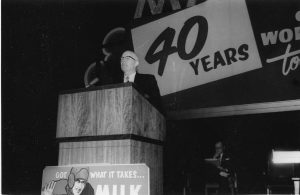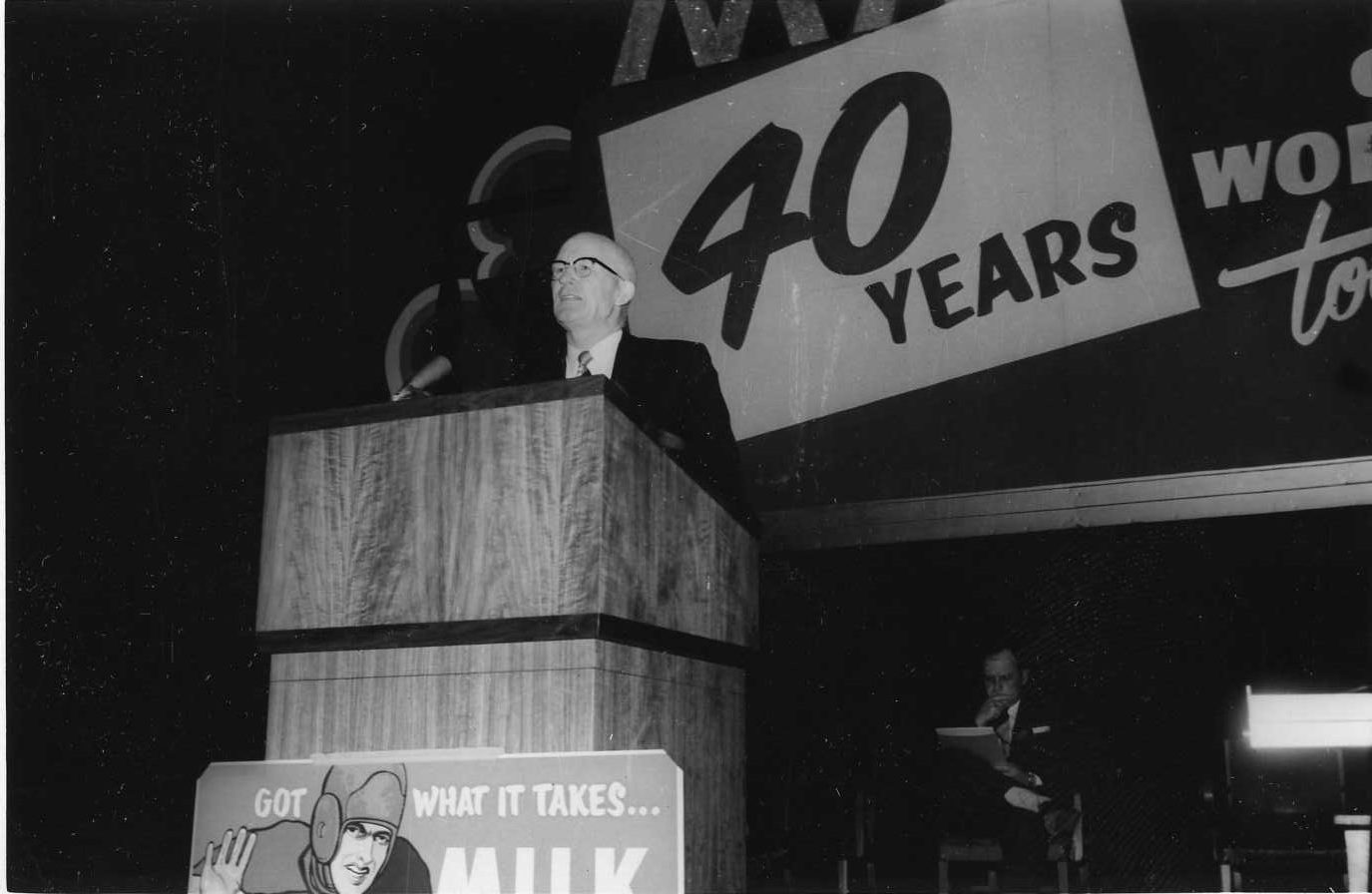Maintaining a business for 100 years requires remarkable leadership and belief in the company. MMPA managed to have both, stacking decades on top of decades of business through leadership that pioneered the dairy industry from one century to another.MMPA began leading the dairy industry by simply existing. Forming the cooperative was the first step in their greatness but so many steps followed like being the first to structure the milk price on the basis for how it was used.
MMPA was the first in the United States to successfully establish a superpool program. The Great Lakes Milk Marketing Federation was established and included five milk marketing cooperatives covering Ohio, Pennsylvania, Indiana and Michigan. General Manager Jack Barnes said the milk marketing world was shocked as MMPA led the way in area pricing across several markets.
While MMPA chose the road less traveled to forge their success, they did it with leaders of longevity and who served a purpose in each of their tenures.
John Near was the first state wide Secretary-General Manager who served from 1921-1927. He was at the helm at a great time of growth, managing at the new Detroit office in the Owen Building in downtown Detroit. Because the Detroit area was a huge market for MMPA another leader was tapped to manage just the Detroit market, Bernie Beach.
Beach was a man of many talents as he succeeded Near in 1927. Not only did he take the cooperative through the devastating years of the Great Depression when milk prices took a deep dive, but he was also the editor of the Michigan Milk Messenger. Beach moved to managing the Michigan Producers Dairy Company and that opened the door to a new General Manager in Howard Simmons to take the lead in 1940.

On the cusp of World War II, Simmons took the transportation improvements of Bernie Beach and strengthened them. In the 1930s and early 1940s, a system of transport units was developed and as MMPA became the dominant transporter of milk, the freight rates, all of which were paid by the farmer, were reduced dramatically. As the U.S. came out of WWII, MMPA had a system of receiving plants, a transportation fleet and the Imlay City processing plant. This operating system put considerable muscle in MMPA’s marketing program.
Jack Barnes came on the scene as the General Manager in 1959 and held that position until 1985. Barnes leadership allowed MMPA to hold control over a major portion of the milk supply and be a part of the merger of fourteen different cooperatives into MMPA. He also led the cooperative through a complete organizational overhaul enabling MMPA to survive and lead the industry through the next three decades.
Walt Wosje took over in 1985 and the strength of leadership continued. Stuck in the muck and mire of a failed McDonald Cooperative Dairy Company, Wosje was able to negotiate the sale of the McDonald Division, the first of many accomplishments realized through the leadership of Wosje. The Remus cheese plant produced great volumes of cheese but had little to no market for the product. Wosje put an end to that when he and then President Elwood Kirkpatrick signed a deal with
Leprino foods to produce mozzarella cheese for four top pizza chains. The result was an instantaneous turnaround of the financial failings of the Remus plant, a long term outlet for member milk and profit sharing from sales of mozzarella made there.
When Wosje retired in 2003 the cooperative was a very attractive market for expanding dairy producers and created a new problem for the new general manager, John Dilland: a need for greater capacity to handle an increasing volume of milk.
Dilland was no stranger to the challenges of running a cooperative. Dilland began in 1975 at MMPA as a controller and director of finance before being asked
to serve as General Manager in 2003. He experienced the United Twin Pines trouble with their delinquent account when they couldn’t pay their milk
bill and the McDonald Dairy debacle. When he took over the general manager position he was well seasoned in adversity and lead the cooperative through the first decade of the new century, retiring in 2010.
Following Dilland’s retirement, Clay Glarneau served as general manager before resigning in 2014. Another leader with great financial experience moved from MMPA’s director of finance to general manager and is serving in that position today: Joe Diglio.
Diglio had the great fortune to celebrate the 100th anniversary as MMPA’s GM and has the same passion as his predecessors possessed for successful cooperative and profitable dairymen as they move down the road less traveled into the next 100 years.
–Melissa Hart
This article originally appeared in the November 2016 issue of the Michigan Milk Messenger.

